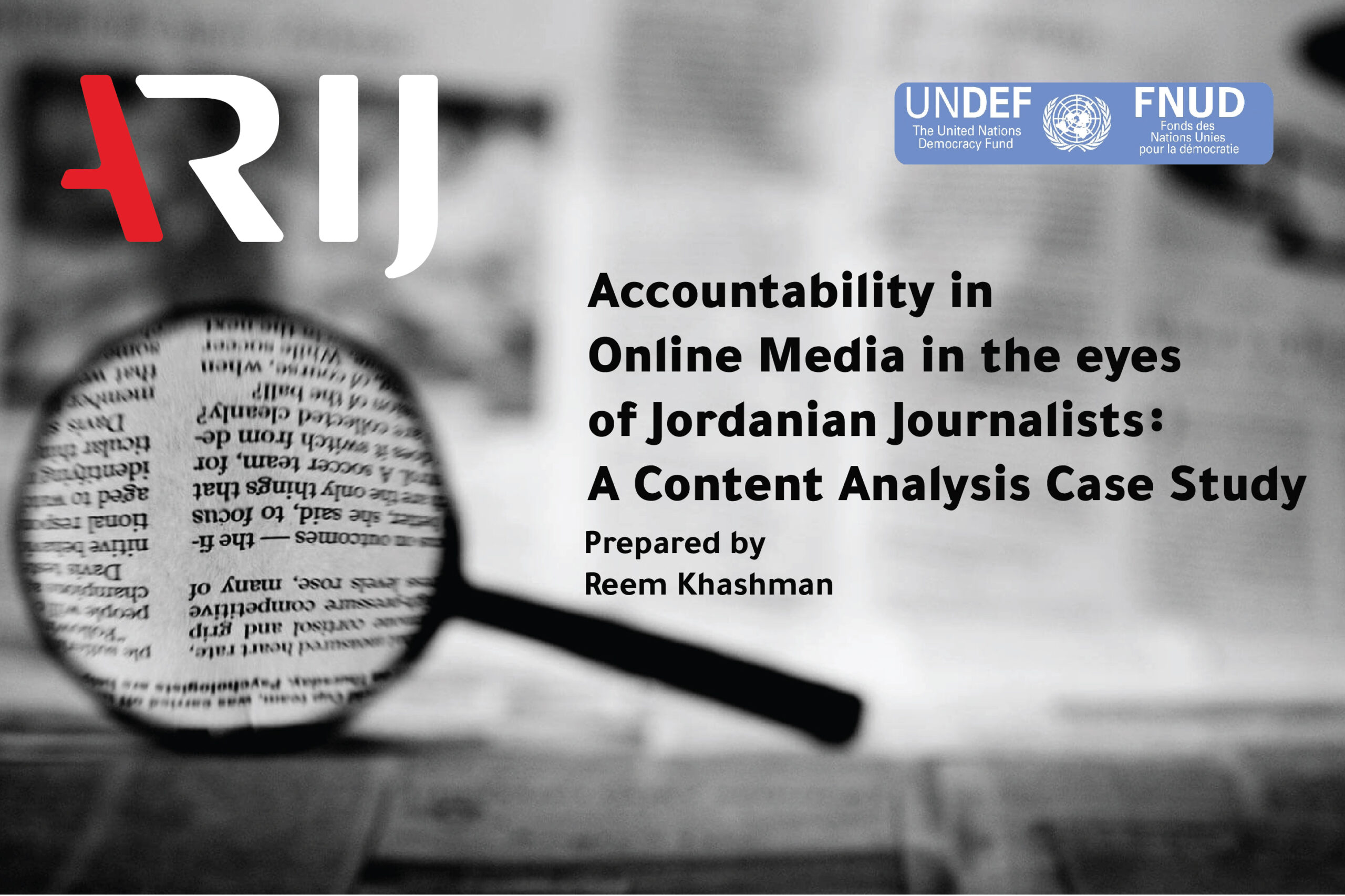During a discussion session held in partnership between ARIJ and the United Nations Democracy Fund, a policy paper entitled “Accountability in Electronic Media From the Point of View of Jordanian Journalists: A Case Study Through Content Analysis” was launched, prepared by researcher Reem Khashman. The policy paper focused on the right to access the Internet and information, media literacy, the availability of resources, and their importance in ensuring media accountability in Jordan. It also detailed the main findings of the content analysis of the cases addressed in the “Who Takes the Responsibility?” project, and made recommendations to the various actors in Jordan.
The participants in the session titled “The Lost Trust between the Media and Society in Light of the Spread of Rumours: The Education Sector as a Model?” discussed a set of problems and challenges related to the education sector in light of the spread of false news, most notably the absence of media literacy, and the multiplicity of information sources that increase the spread of rumours, in addition to the lack of coordination between the various government agencies, as well as the lack of interest of journalists, especially those with short experience, to verify information and news with sufficient accuracy.
During the session, lawyer Khaled Khleifat stressed on the need for media literacy to be part of education in Jordanian schools. He also stressed the need for legal regulation to counter the spread of rumours and false news, bearing in mind not to breach freedom of opinion and expression.
The educational expert, Dr. Sami Al-Mahasis, said during the session that when the government only involves specific media outlets with information, it causes concern to other media outlets. For example, when the government decides to postpone the start of the school year, this must be done by holding a press conference attended by everyone, and not giving the information to specific parties without the others.
The session was attended by Jordanian journalists, human rights activists, lawyers, and representatives of civil society institutions in Jordan. They all put forward a set of proposals and ideas to solve these problems, including that the government should present detailed answers to facilitate the journalists’ work, instead of providing short answers that lack adequate information and become a fertile ground for the spread of rumours. They also stressed on the need to build a strong trustful relationship between media and government agencies, to work together to prevent the spread of rumours.
In the context of talking about the policy paper, within the “Who Takes the Responsibility?” project, the focus was on 6 in-depth reports on education, namely:
A case study analysis and comparison of different media was conducted while working on this paper. The systematic analysis included desk research and comparative analysis. Interviews were also conducted with journalists, to understand the frameworks and challenges they faced while preparing their reports.
The paper concluded with a set of general recommendations, in addition to recommendations for the Jordanian Journalists Syndicate, the Jordanian Parliament, the Media Commission, civil society organisations working with journalists, and ARIJ.
To read the policy paper, click here








